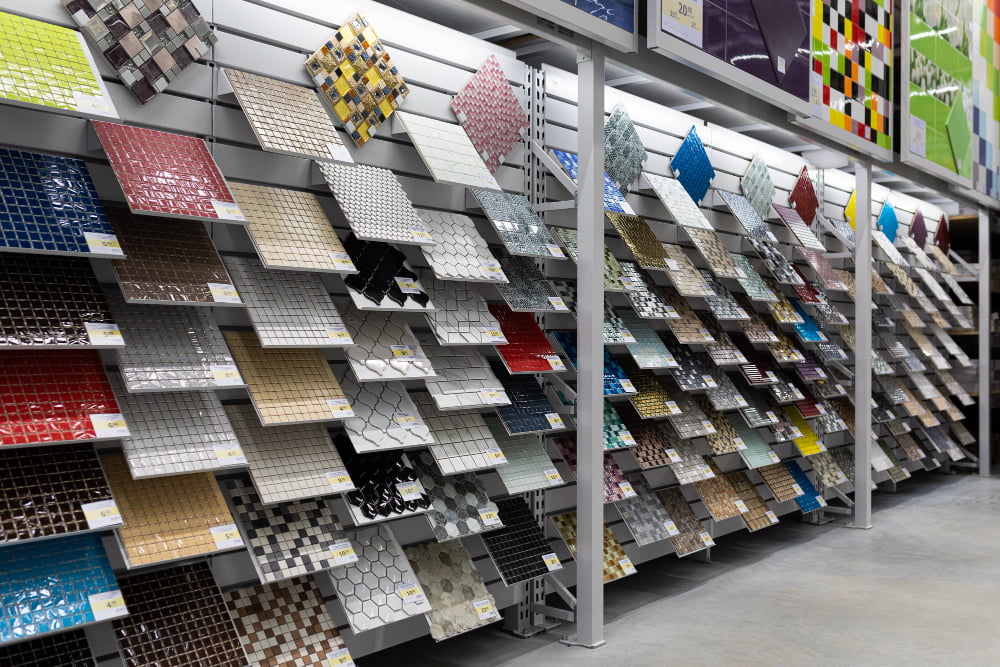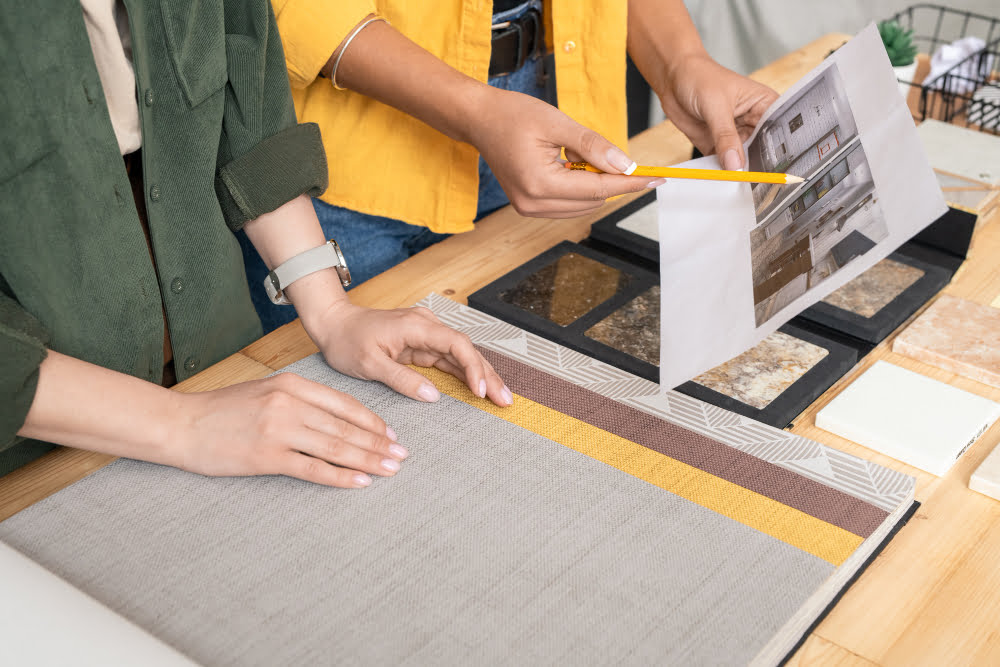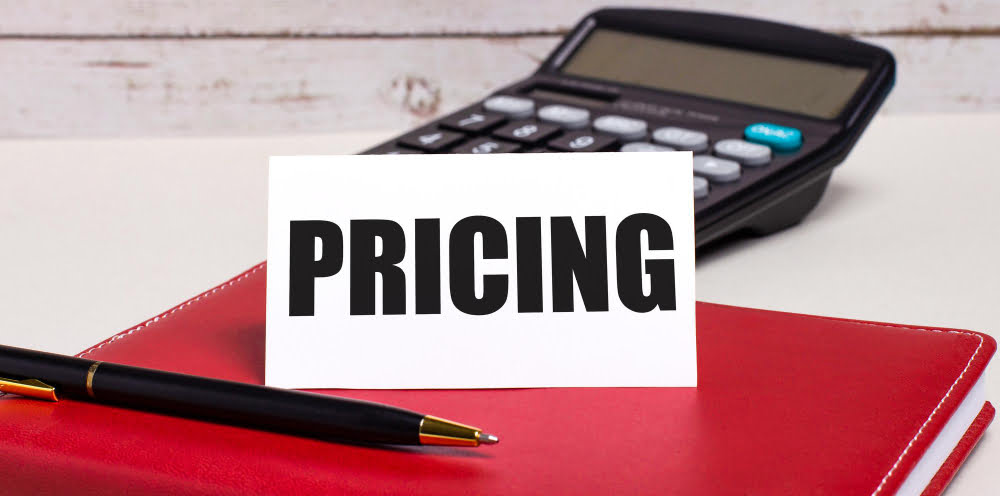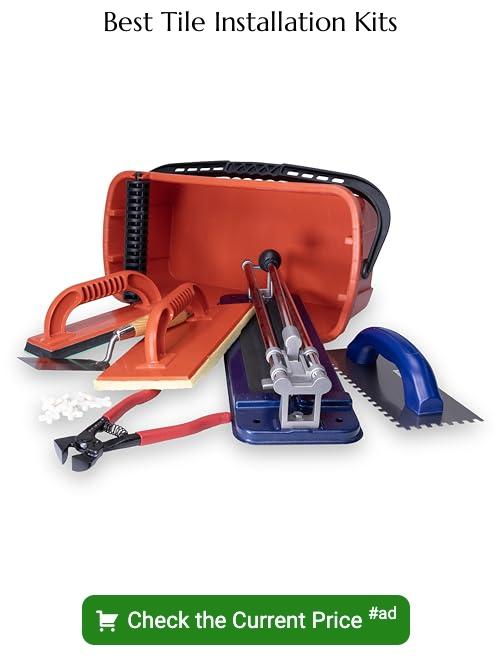Last updated on
Check out these ways how to sell tiles. Read the article below to learn more about selling tiles.
Are you looking to sell your home and wondering what updates you can make to increase its value? One of the most overlooked areas of a home renovation is the flooring. Specifically, tiles can be a game-changer when it comes to selling your home.
Not only do they add a touch of elegance and sophistication, but they are also durable and easy to maintain. In this article, we will explore why tiles are an excellent investment for homeowners looking to sell their property and how you can use them strategically in your next renovation project.
So if you’re ready to take your home’s value up a notch, let’s dive in!
Key takeaways:
- Determine your target customer base and their preferences.
- Offer a variety of tile options, such as ceramic, porcelain, natural stone, glass, and mosaic.
- Understand the tile market and competition in order to stand out.
- Tailor your marketing efforts and product offerings to your customer base.
- Create a comprehensive inventory list and establish relationships with reliable suppliers.
Types of Tiles to Sell

When it comes to selling tiles, there are a variety of options available on the market. The type of tile you choose to sell will depend on your target customer base and their preferences.
Some popular types of tiles include ceramic, porcelain, natural stone (such as marble or granite), glass, and mosaic.
Ceramic tiles are one of the most common types used in homes due to their durability and affordability. They come in various sizes and designs that can mimic other materials like wood or stone.
Porcelain is another popular option for homeowners looking for durable flooring solutions with low maintenance requirements. Porcelain is denser than ceramic which makes it more resistant to scratches and stains.
Natural stone tiles offer a unique look that cannot be replicated by any other material due to their natural variations in color patterns. However, they require regular sealing as they tend to absorb moisture easily.
Glass tile has become increasingly popular over recent years because it adds an elegant touch while reflecting light beautifully throughout the room where installed.
Mosaic Tiles have been around since ancient times but still remain relevant today thanks largely due their versatility when creating intricate designs using small pieces arranged together to form larger images such as murals or mosaics.
Tile Market Overview
According to a report by Grand View Research, Inc., the global ceramic tiles market size was valued at USD 56.05 billion in 2018 and is projected to grow at a compound annual growth rate (CAGR) of 7.1% from 2019 to reach USD 107.31 billion by the end of the forecast period.
This means that there are plenty of opportunities for entrepreneurs looking to start their own tile business or expand an existing one.
However, it’s important to note that competition in this industry can be fierce, with many established players dominating certain segments of the market.
To succeed in selling tiles, you need not only quality products but also smart marketing strategies and excellent customer service skills. Understanding your target audience and catering your offerings accordingly can help you stand out from competitors while maximizing profits.
Targeting Your Customer Base

Who are the people most likely to purchase tiles from you? Are they homeowners looking for a DIY project or contractors in need of bulk orders? Once you have a clear understanding of your ideal customers, it will be easier to tailor your marketing efforts and product offerings.
For example, if you’re targeting homeowners who want an easy-to-install flooring option for their kitchen or bathroom renovation projects, consider offering peel-and-stick tile options. On the other hand, if contractors make up a significant portion of your customer base, focus on providing high-quality materials at competitive prices.
It’s also essential to consider factors such as location and demographics when targeting potential customers. If there is a high demand for luxury home renovations in affluent neighborhoods near where you operate your business – then focusing on premium tile options may be more profitable than selling budget-friendly alternatives.
Creating a Tile Inventory

This will help you keep track of your stock and ensure that you always have enough tiles on hand for your customers.
To begin, research the different types of tiles available in the market and decide which ones you want to sell. You can choose from ceramic, porcelain, natural stone, or glass tile options depending on what suits your business model best.
Next up is sourcing suppliers who can provide quality products at competitive prices. It’s important to establish relationships with reliable suppliers so that they can deliver orders promptly when needed.
When creating an inventory list for tile sales purposes, it’s essential to include all relevant information such as product name/number/code/color/size/material type/cost per unit/supplier details, etc., so that it becomes easy for both yourself and potential buyers alike when making purchasing decisions.
Online Vs. Physical Storefront

Both have their advantages and disadvantages, so it’s important to weigh them carefully before making a decision.
An online store allows you to reach customers from all over the world without the overhead costs of rent and utilities associated with a brick-and-mortar location. You can also easily update your inventory and pricing in real-time, which is especially useful if you’re working with limited stock or running promotions.
On the other hand, having a physical storefront gives customers the opportunity to see your products in person before making a purchase. This can be particularly helpful for high-end tile materials that require tactile inspection such as marble or granite tiles.
Ultimately, whether you choose an online store or physical storefront depends on your target market and business goals. If most of your potential buyers are tech-savvy millennials who prefer shopping from home then going digital might be more profitable for you; however if they are mostly homeowners looking for premium quality tiles then setting up shop at prime locations may work better.
Pricing Strategies for Tiles

First and foremost, you want to make sure that your prices are competitive with other tile businesses in the market. This means doing some research on what other companies are charging for similar products.
Another factor to consider is the cost of production. You need to ensure that your prices cover all expenses related to manufacturing and shipping while still allowing room for profit.
One strategy that many successful tile businesses use is offering discounts or promotions during slow seasons or holidays when sales tend not be as high as usual. This can help attract customers who may have been hesitant before due to price concerns.
It’s also important not only focus on pricing but also quality customer service and product offerings such as unique designs or eco-friendly materials which can set you apart from competitors in the market.
Marketing Techniques for Tile Business

Marketing techniques can vary depending on the type of tiles you sell and your target customer base. However, there are some general marketing strategies that can help increase brand awareness and drive sales.
One effective technique is to create a strong online presence through social media platforms such as Facebook, Instagram, or Pinterest. These platforms allow businesses to showcase their products visually and engage with potential customers directly by answering questions or providing design inspiration.
Another strategy is collaborating with home renovation influencers who have a large following on social media channels like YouTube or TikTok. By partnering with these influencers, they can promote your products in their videos while also providing valuable content about how tiles fit into different interior design styles.
In addition to digital marketing efforts, traditional advertising methods such as print ads in local newspapers or magazines may be useful for targeting specific geographic areas where homeowners are more likely to invest in home renovations.
Offering promotions like discounts during peak seasons (such as spring when many people start renovating) could attract new customers while retaining existing ones.
Building a Tile Business Website

A website can help you reach a wider audience and showcase your products to potential customers. Building a tile business website doesn’t have to be complicated or expensive.
There are many user-friendly platforms available that allow you to create professional-looking websites without any coding knowledge.
When building your tile business website, it’s important to keep in mind the needs of your target audience. Make sure that the design is visually appealing and easy to navigate so that visitors can quickly find what they’re looking for.
You should also include high-quality images of your tiles on the site along with detailed descriptions and pricing information. This will give potential customers an idea of what they can expect from your product line before making a purchase decision.
Another essential element of building a successful tile business website is search engine optimization (SEO). By optimizing content on each page with relevant keywords related to tiles, you’ll increase visibility in search engines like Google which will drive more traffic back towards your site.
Social Media Promotion

Platforms like Facebook, Instagram, and Twitter allow you to reach a wider audience and engage with potential customers in real time. To effectively promote your tile business on social media, it’s important to create engaging content that showcases the quality of your products.
One way to do this is by sharing photos of completed projects or before-and-after shots that demonstrate the transformative power of tiles. You can also share customer reviews or testimonials as social proof of the quality and reliability of your products.
Another effective strategy is running targeted ads on these platforms based on demographics such as location, age group, or interests which will help you reach people who are more likely interested in buying tiles from you.
It’s essential not only to post regularly but also to interact with followers by responding promptly when they ask questions about pricing options or product availability through direct messages (DMs) so they feel valued and heard.
Collaborating With Tile Manufacturers

Collaborating with tile manufacturers can be an excellent way to ensure that you have a steady supply of top-notch tiles for your customers.
When looking for manufacturers to partner with, it’s essential to do your research and find companies that align with your values and goals. Look for manufacturers who prioritize quality, sustainability, and innovation in their production processes.
Once you’ve identified potential partners, reach out and start building relationships. Attend trade shows or industry events where you can meet face-to-face and discuss potential collaborations.
Working directly with tile manufacturers also gives you the opportunity to offer unique products that may not be available through other retailers. This exclusivity can help set your business apart from competitors in the market.
Shipping and Logistics

Shipping and logistics are crucial aspects of any retail business, including tile sales. You need to consider factors such as packaging materials, shipping carriers, delivery timescales, tracking systems for orders as well as returns or exchanges.
When it comes to tiles specifically, they can be heavy and fragile items that require careful handling during transportation. Therefore it’s important to choose reliable shipping partners who specialize in transporting delicate goods like tiles.
To streamline the process of shipping out orders from your store or warehouse location(s), you may want to invest in an inventory management system with integrated order fulfillment capabilities. This will help automate many tasks related to packing slip generation; label printing; carrier selection based on weight/size restrictions etc., which ultimately saves time while reducing errors.
Offering free or discounted shipping options can be a great way of attracting more customers while also increasing customer satisfaction levels by providing them with added value for their purchases.
Customer Service in Tile Business

As a home decorator or tile business owner, you want your customers to feel valued and heard. This means providing excellent customer service before, during, and after the sale.
Before the sale: Make sure that your website or storefront is easy to navigate so that potential customers can find what they are looking for quickly. Provide detailed product descriptions with high-quality images so that buyers know exactly what they are getting.
During the sale: Be available to answer any questions or concerns that may arise during the buying process. Respond promptly and professionally via email, phone call, or chat support.
After the sale: Follow up with your customers after their purchase has been made by sending a thank-you note along with information on how they can contact you if there are any issues with their order. Offer returns and refund policies as well as warranties on products sold.
Handling Returns and Refunds

Even with the best quality tiles, there may be instances where customers are not satisfied with their purchase or receive damaged products. It’s essential to have a clear return policy in place that outlines the conditions for returning items, such as time limits and acceptable reasons.
When handling returns or refunds, it’s crucial to communicate clearly with your customers. Respond promptly to any inquiries they may have about the process and provide them with all necessary information upfront so that they know what steps need to be taken.
To minimize potential losses from returned items, consider implementing restocking fees or other charges associated with processing returns. This can help offset some of the costs associated with accepting returned merchandise while also discouraging frivolous requests for refunds.
Expanding Your Tile Business

Expanding your business can mean different things to different people. It could be opening up another physical store in a new location or branching out into online sales.
If you’re considering opening another physical store, make sure to do thorough research on the area before making any decisions. Look at demographics, competition, and potential demand for tiles in that area.
On the other hand, if you want to expand into online sales but don’t know where to start – there are many options available today! You can create an e-commerce website or sell through popular marketplaces like Amazon or Etsy.
Another way of expanding is by offering more products related to tiles such as grout cleaners and sealers which will complement your existing product line while increasing revenue streams from each sale made by customers who purchase both items together!
Understanding Legal Requirements

You’ll need to register your company and obtain any necessary licenses or permits required by your state or local government. You’ll need to ensure that you’re following all applicable laws regarding taxes, employment practices, and safety regulations.
One of the most important aspects of understanding legal requirements is ensuring that your products meet industry standards for quality and safety. This means working with reputable manufacturers who produce tiles according to established guidelines.
Another critical aspect of operating within legal boundaries is protecting yourself from liability issues. Make sure you have adequate insurance coverage in place for both property damage and personal injury claims.
Managing a Successful Tile Business

Managing a successful tile business requires careful planning and execution of various strategies. One of the most critical aspects is maintaining an inventory that meets customer demand while keeping costs low.
Another crucial factor in managing a successful tile business is providing excellent customer service. Customers are more likely to return if they feel valued and appreciated by your company.
This means responding promptly to inquiries, addressing complaints professionally, and going above and beyond when necessary.
Staying up-to-date with industry trends can help you stay ahead of the competition. Attend trade shows or conferences related to tiles regularly; this will give you insights into new products or techniques that could benefit your customers.
Having reliable suppliers who provide quality materials at reasonable prices is vital for any tile business’s success. Building strong relationships with manufacturers can also lead to exclusive deals on unique products that set your store apart from others in the market.
From the Given List
Whether you’re just starting out or looking to expand your existing tile business, having access to professional tools and smart marketing strategies is essential for success. Award-winning support can also make a big difference in helping you navigate the challenges of running a tile business.
One important consideration is pricing your tiles competitively while still making a profit. You’ll need to research market trends and understand what types of customers are most likely interested in purchasing your products.
Another key factor is choosing between an online storefront or a physical location for selling your tiles. While both options have their advantages and disadvantages, an online store may be more cost-effective initially as it eliminates overhead costs associated with renting space.
To build brand awareness and attract new customers, effective marketing techniques such as social media promotion should be utilized along with building a website that showcases all available inventory clearly.
Collaborating with manufacturers who specialize in producing high-quality tiles will help ensure customer satisfaction while handling returns/refunds efficiently and will keep them coming back for more purchases.
Everything You Need to Sell Tiles

From choosing the right types of tiles to marketing your business effectively, there are many factors that can impact your success in this field.
To get started, you’ll need a few key things:
- Comprehensive knowledge of different tile materials and styles
- An inventory management system for tracking stock levels and sales
- A pricing strategy that balances profitability with competitiveness in the market
- Marketing tools such as social media accounts or an e-commerce website
You may want to consider partnering with manufacturers or suppliers who can provide high-quality products at competitive prices.
Professional Tools

These tools can help you streamline your operations, manage inventory, and track sales data. One of the most important professional tools is a point-of-sale (POS) system that allows you to process transactions quickly and efficiently.
A good POS system should also be able to generate reports on sales trends, customer behavior, and inventory levels.
Another crucial tool for selling tiles is a website builder that enables you to create an online store where customers can browse your products anywhere. With an e-commerce platform like Shopify or WooCommerce, you can easily set up an online storefront with features such as product listings with images and descriptions, and shopping cart functionality for easy checkout processes.
In addition to these digital tools mentioned above; physical equipment such as measuring tapes or laser distance meters are necessary when taking measurements at job sites before installation begins.
Smart Marketing

Smart marketing is essential for any business, but especially for a niche market like tiles. You need to identify your target audience and create a message that resonates with them.
One of the most effective ways to reach potential customers is through social media platforms like Facebook, Instagram, Pinterest, or Twitter. These platforms allow you to showcase your products visually and engage with potential buyers directly.
Another smart marketing technique is email campaigns targeted at previous customers or those who have shown interest in similar products before. This can be an excellent way of keeping people informed about new arrivals or special promotions.
You can also consider collaborating with interior designers who are always looking for unique materials that will make their projects stand out from the rest. By partnering up with these professionals, you’ll get exposure among their clients as well as access to valuable feedback on what works best in terms of design trends.
Don’t forget about traditional advertising methods such as print ads or flyers distributed locally around home improvement stores where people go when they’re looking for renovation ideas. A successful tile business requires not only quality products but also smart marketing strategies tailored toward reaching specific audiences effectively while staying within budget constraints.
Award-winning Support

As a home decorator, you want to ensure that your customers have access to the best possible service and support when they purchase tiles from you. This means providing them with expert advice on choosing the right type of tile for their needs, as well as offering guidance on installation and maintenance.
At our company, we understand how important it is to provide exceptional customer service. That’s why we offer award-winning support that has been recognized by industry experts for its excellence.
Our team of knowledgeable professionals is always available to answer any questions or concerns that your customers may have about their purchases.
Whether it’s helping them choose the perfect color or pattern for their space or providing tips on how to clean and maintain their new tiles, our award-winning support team will go above and beyond to ensure complete customer satisfaction.
Learn More About Selling Tiles

From online courses and webinars to industry conferences and trade shows, there are many opportunities for aspiring tile sellers to gain knowledge and expertise in the field.
One great place to start is by researching successful tile businesses that have already made a name for themselves. Look at their websites, social media pages, marketing strategies, pricing models, and customer service policies – anything that can give you insight into what works (and what doesn’t) when it comes to selling tiles.
Another valuable resource is industry associations such as the National Tile Contractors Association or the Ceramic Tile Distributors Association. These organizations offer training programs and networking events where you can connect with other professionals in the field and learn from their experiences.
Don’t underestimate the power of good old-fashioned trial and error. Starting your own tile business may involve some initial experimentation with different products or marketing techniques before finding your niche audience or perfecting your sales pitch.
How Do I Sell Tiles Online?

First and foremost, you’ll need an e-commerce website that is easy for customers to navigate and purchase from. You can either build your own website or use an existing platform like Shopify or WooCommerce.
Once your website is up and running, it’s important to optimize it for search engines so that potential customers can find your products easily. This involves using relevant keywords in product descriptions and titles as well as creating high-quality content on your site.
Another key aspect of selling tiles online is marketing. Social media platforms like Facebook, Instagram, and Pinterest are great places to showcase images of the different types of tiles available in stock while also engaging with potential buyers through comments sections.
Make sure that shipping logistics are taken care of properly by partnering with reliable courier services such as FedEx or UPS who offer tracking options so both parties know where the shipment stands at any given time during transit.
Where Can I Sell Tiles Online?

One of the most popular platforms is Amazon, which has a dedicated section for home improvement products. You can also consider selling on Etsy or eBay, both of which have a large customer base and allow you to set up your own storefront.
Another option is to create your own website and sell directly from there. This gives you more control over the branding and marketing of your business but requires more effort in terms of building an audience and driving traffic.
When choosing where to sell tiles online, it’s important to consider factors such as fees, shipping costs, payment processing options, and customer support features offered by each platform.
How Do I Price Tiles?

First and foremost, you need to determine the cost of your materials and labor. This will give you a baseline for how much each tile should cost.
Take into account any overhead costs such as rent or utilities if operating from a physical storefront.
Next, research your competitors’ prices in the market and adjust accordingly based on quality differences between their products versus yours.
It’s also important to keep in mind that customers may be willing to pay more for unique or custom-made tiles that cannot be found elsewhere.
Don’t forget about shipping costs if selling online – these can add up quickly depending on where your customer is located.
What Are Some Good Examples of Online Tile Stores?

One of them is Wayfair, which offers an extensive range of tiles for every budget and style preference. Another popular option is BuildDirect, which has a user-friendly website and provides free samples to customers before they make their purchases.
For those looking for more unique or artisanal options, Etsy can be an excellent platform to sell handmade or vintage tiles. Similarly, Houzz Marketplace offers a wide selection of designer-made tiles from around the world.
It’s worth noting that while these platforms offer great exposure and convenience for sellers looking to expand their reach beyond physical storefronts; they also come with fees and commissions on sales made through their websites. Therefore it’s essential first to understand your business needs before choosing where you want your tile store listed online.
Powerful Apps

With the rise of mobile technology, it’s essential to have an app that allows customers to browse and purchase tiles on the go. Apps like Houzz and Pinterest are great examples of how you can leverage technology to reach more customers.
Houzz is a popular home design app that features millions of photos from top designers around the world. You can create an account as a tile seller, upload images of your products, and connect with potential buyers in real time.
Pinterest is another powerful tool for promoting your tile business online. By creating boards featuring different types of tiles or design ideas using tiles, you can attract new followers who may be interested in purchasing from you.
In addition to these third-party apps, consider developing your own custom app specifically designed for selling tiles online. This will allow you greater control over the user experience while also providing valuable data about customer behavior that could inform future marketing strategies.
Sell Everywhere

This means not only having a physical storefront but also an online presence. With the rise of e-commerce, more and more customers are turning to the internet for their shopping needs.
Having an online store allows you to reach a wider audience and sell your products 24/7 without any geographical limitations. You can use various platforms such as Amazon, eBay, or Etsy or even create your own website with e-commerce capabilities.
However, it’s important not just to rely on one platform but instead diversify where you sell your tiles. By doing so, you increase the chances of reaching potential customers who prefer different marketplaces.
In addition to this strategy being beneficial for sales purposes alone; having multiple channels will help build brand awareness and credibility across different markets which is essential when trying new things like expanding into international markets or launching new product lines.
So if you’re looking at starting up a tile business today – don’t forget about selling everywhere!
Scalable Pricing Plans

As your business grows, you need a pricing plan that can accommodate the increasing demand for your products without sacrificing profitability. A scalable pricing plan allows you to adjust prices based on market trends, customer behavior, and other factors that affect sales.
For example, suppose there is an increase in demand for a particular type of tile or design style during certain seasons or events like home renovation shows or exhibitions. In that case, it’s important to have flexible price points so that customers can still afford what they want while also ensuring maximum profit margins.
Moreover, with the rise of e-commerce platforms such as Amazon and eBay where competition is fierce among sellers offering similar products at different prices; having a scalable pricing strategy becomes even more critical. By using dynamic algorithms based on real-time data analysis from various sources including competitors’ websites/social media pages etc., businesses can optimize their product offerings by adjusting prices accordingly – this helps them stay competitive while maximizing profits.
Scalable Pricing Plans are crucial when selling tiles online because they allow businesses to remain competitive in an ever-changing marketplace while maintaining profitability levels over time.
FAQ
How can I sell my tiles?
To sell your tiles, set up an Ecwid store on your website, social media, Amazon, or eBay, create an Instant Site, or add a “Buy Now” button to your blog.
Can I sell leftover tiles?
Yes, you can sell leftover tiles on selling sites like Facebook Marketplace or eBay, potentially helping someone in need of a few tiles for their house improvements.
How profitable is a tile business?
The profitability of a tile business depends on various factors, but many tile stores report profits of over $50,000 in their first year, with steady growth as the knowledge of the industry increases.
What are the best platforms for selling tiles online?
The best platforms for selling tiles online include eCommerce sites like Etsy, eBay, and Amazon, as well as establishing a website and utilizing social media marketing.
How do I determine the value of my tiles before selling them?
To determine the value of your tiles before selling, research their material, condition, and current market demand, and compare them to similar tiles being sold.
Are there any legal restrictions or requirements for selling tiles?
Answer: Yes, there are legal restrictions and requirements for selling tiles, which may vary depending on local regulations and compliance with industry standards.
Recap:





